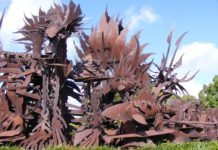Photo credit: DiasporaEngager (www.DiasporaEngager.com).
- According to the Turkish Energy Minister, Turkey will have exclusive rights for search and production when we find oil in these areas.
- Turkey and Somalia signed a defense and economic cooperation agreement during the Somali Defence minister’s visit to Ankara
- In March Somalia inked an oil and gas deal with Turkey which officials mentioned would foster cooperation in the exploration and exploitation of the deposits.
Somalia and Turkey Oil Deal
Despite being torn apart by civil war, Somalia’s geo-seismic studies have shown the war-torn country may have at least 30 billion barrels of oil and gas reserves.
Inching towards stability and fostering civil rest amid Islamic insurgents posing a threat to peace and harmony, Somalia’s newly discovered oil and gas deposits could be the nation’s breakthrough.
Although the resources take time to develop – exploration usually takes three to five years and production can only begin after the latter is accomplished.
The recent development attained by Turkey slated to send navy support to Somali ocean waters after the two nations agreed for Ankara to deploy an exploration vessel off the coast of Somalia to explore for oil and gas.
“We will send our Oruc Reis vessel to Somalia at the end of September or early October. It will conduct a significant seismic study there, which can last for months,” Turkish Energy Minister Alparslan Bayraktar said.
Bayraktar also said that two of the three blocks were 50 kilometers off the Somalia coast, adding that the third one was 100 km away.
“We think that Somalia has significant oil and natural gas resources offshore. We signed an offshore deal for three blocks. Turkey will have exclusive rights for search and production when we find oil in these areas,” Bayraktar said.
According to a report by The Citizen, the move came a day after the Turkish Energy Ministry announced that Turkey would send an exploration vessel off the coast of Somalia later this year to search for oil and gas as part of a hydrocarbon cooperation deal between two countries.
Further, earlier this year, Turkey and Somalia signed a defense and economic cooperation agreement during the Somali Defence minister’s visit to Ankara.
The Middle Eastern nation has become a close ally of the Somali government in recent years. Turkey which is also building Tanzania’s first electric train has built social amenities and infrastructure and provided scholarships for Somali students to further studies in Turkey.
In 2017, Turkey launched its largest overseas military base in Somalia Mogadishu. Turkey also provides training to the Somali military and police.
READ: Hormuud Telecom unveils 5G network across Somalia
Inked Energy Deal
In March Somalia inked an oil and gas deal with Turkey which officials mentioned would foster cooperation in the exploration and exploitation of the deposits.
Somalia’s Petroleum and Mineral Resources Abdirisaaq Omar Mohamed Minister and Turkish Energy Minister Alparslan Bayraktar signed the energy deal in Istanbul.
More importantly, the deal signaled the tightening of relations between the two nations. The oil deal came just two weeks after Somalia and Turkey signed a marine and defense cooperation agreement. The country’s bicameral parliament endorsed both deals.
According to an official dispatch, the agreement targets hydrocarbon reserves in Somalia’s exclusive economic zone and land exploration that has never been developed. On the other hand, the Minister declined to state how the revenues, from the investments, will be shared.
Consequently, Abdirisaaq Omar Mohamed refuted reports that indicated that Turkey would earn 30 percent of the revenue.
“These details will be indicated by a Production Share Agreement (PSA) when reached,” he said on Thursday.
“What we signed is not a Production Share Agreement (PSA),” adding that it will be realized in the next stage. We signed a Cooperation Framework Agreement, which is broad like a MoU. It clarifies the role and responsibilities of both Turkey and Somalia, paving the way for PSA,” Omar Mohamed stated.
He highlighted that further steps remain until a PSA is attained that indicates the way for production when the Turkish side will obtain off-shore and on-shore oil and gas data.
“All this agreement indicated is the royalty, which by law is 5 percent, to be paid by business owners,” Omar Mohamed further indicated, contacting provisions for the rights of each side and reference for arbitration if needed.
However, the Citizen report pointed out that, Somalia’s critical move came just after tensions emerged with Ethiopia over a controversial Memorandum of Understanding (MoU) between Addis Ababa and Somalia’s breakaway region, Somaliland signed on January 1 which supposedly gave the Ethiopian government access to a strip of 20km for a naval base and commercial activities in exchange for Ethiopia recognizing the self-declared Somaliland as an independent country, Somalia has rallied for support.
READ: Africa’ s oil and gas exploration is going strong
This Is Not Turkey’s First Rodeo in Somalia
In a peculiar turn of events, President Recep Tayyip Erdoğan, then Prime Minister of Turkey, was the earliest foreign head of government to visit Mogadishu in 2011 at the height of the great famine that hit Somalia while it was also plagued by civil unrest.
Ankara has invested heavily in Somalia’s health and humanitarian sectors including building the largest medical facility and establishing TuirkSom – a military training base in Mogadishu.
Further, Turkish firms also run strategic installations like Mogadishu’s port and airport. The Middle Eastern nation has built in Mogadishu its largest embassy in the world, facing the Indian Ocean.
On the other side of the aisle, Somalia Defence Minister Abdulkadir Mohamed Nur and Turkish counterpart Yaşar Güler had on February 22 signed a defense deal, but President Hassan Sheikh Mohamud has labeled the Turkey-Somalia agreement as a defense and economic cooperation pact meant to help Somalia defend its sea waters against terrorism, piracy and any external threat that could violate Somali state. It will be valid for the next 10 years.
Oil and Gas Industry in Somalia
According to a report by the US International Trade Administration before the conflict and collapse of the government in 1991, international oil and gas co-operations had exploration agreements in Somalia, but they were called off because of the civil war. Energy firms like Royal Dutch Shell and ExxonMobil were in operation in Somalia before the government collapsed in 1991.
In 2020, the government passed a petroleum law under which the Somali Petroleum Authority was established to regulate the industry and guide deals with international contractors. Licensing rounds have the potential to generate much greater revenue for Somalia and its regions.
In 2022, Somalia passed regulations related to the offshore licensing of oil and gas, legislation on an oil and gas revenue sharing framework between companies and the Somalia government, and legislation on revenue sharing between the Federal Government of Somalia and Federal Member States. Also in 2022, the first profit-sharing agreement was issued for oil and gas exploration. Additional licensing for other multinational companies is expected in the coming years.
Just like any other nation – the world is watching how Somali a nation is questionable democratic practices unfolds its oil and gas opportunity.
The report indicated that Exploration and production agreements are structured with the intention that the agreements benefit Somalia even before the commercial discovery of petroleum is made. In advance of exploration activities, an international investor may pay an initial agreed amount as a bonus payment. There may also be a royalty, license fee, surface rent, and other taxes. All proceeds are shared in agreed proportions between the Federal government and the regional states.
Somalia is embarking on an interesting journey to produce its first oil in history and become an oil exporter. Hence, the latter stands to be tested by the nation’s commitment to keep peace and stability throughout the rest of the deal.
Source of original article: Industry and Trade – The Exchange (theexchange.africa).
The content of this article does not necessarily reflect the views or opinion of Global Diaspora News (www.GlobalDiasporaNews.com).
To submit your press release: (https://www.GlobalDiasporaNews.com/pr).
To advertise on Global Diaspora News: (www.GlobalDiasporaNews.com/ads).
Sign up to Global Diaspora News newsletter (https://www.GlobalDiasporaNews.com/newsletter/) to start receiving updates and opportunities directly in your email inbox for free.





























